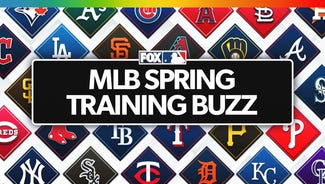
Baseball magazine vendor takes on Cubs, city
CHICAGO (AP) A cable TV ad salesman by day, Matt Smerge had hoped to join in the Chicago Cubs' smashing success this year - the 19th selling his own, low-budget baseball magazine for $2 a copy right outside Wrigley Field. Nearly all the profits, he says, go into a college fund for his teenage son.
But just as the Cubs won the right to go deeper into the playoffs - boosting hopes for a first World Series victory in 107 years - a judge ruled Smerge can no longer sell ''Chicago Baseball'' on the public sidewalk by the stadium. He was ordered to move across the street to a less traveled and, Smerge says, less profitable location.
The dispute stems from a lawsuit Smerge filed against the city after a police officer ticketed him during the April home opener. It pits the one-man publisher against the city and Cubs, raising issues about free-speech rights and sports franchises' attempts to enhance their own profits.
There are several Chicago ordinances city lawyers say should apply to Smerge, including ones restricting peddlers like him on the public sidewalk next to Wrigley Field because the pedestrian congestion they contribute to as 40,000 fans arrive and leave is a safety hazard.
But the 41-year-old Smerge, whose magazine often contains criticism of Cubs management, argues he shouldn't be subject to ordinances designed for peanut or T-shirt vendors because his publication is subject to First Amendment protections.
The team's billionaire owners, Smerge and his lawyer contend, have been pushing the city to enforce the ordinances to ensure the Cubs get exclusive access to fans' money not only in Wrigley Field but also in surrounding public spaces.
''They have their kingdom and they want to protect it against a maverick seller trying to express his views on a public sidewalk,'' Smerge said.
His attorney, Mark Weinberg, added: ''The Cubs are essentially building a moat around Wrigley Field,'' because sports teams can reap millions of dollars in revenue by thwarting small-time vendors.
The Cubs aren't named as a defendant in Smerge's lawsuit and team spokesman Julian Green declined to comment Friday. The Cubs-owning Ricketts family, however, has called previously for better enforcement of peddling ordinances.
The setting of 101-year-old Wrigley Field poses unique challenges. It's on a three-acre plot hemmed in by bustling city sidewalks that the public has well-established rights to use. Newer stadiums nationwide often sit on 30-acre plots surrounded entirely by private property, which is unambiguously off limits to peddlers without team permission.
U.S. District Judge Jorge Alonso sided with the city last Monday - two days before the Cubs beat the Pittsburgh Pirates in the National League Wild Card game, ensuring a Division Series matchup against their longtime rivals, the St. Louis Cardinals.
Alonso said the city's safety concerns were legitimate and he saw no effort to stifle Smerge's free speech. Weinberg said he'll ask an appeals court Monday for an emergency ruling allowing Smerge to sell his magazines at least through the playoffs; the first game at Wrigley is Monday.
On regular-season home game days, Smerge sold around 1,000 magazines, generating $2,000 at the prime sidewalk location; he'd expected profits to boom during the playoffs.
Smerge, who remains a die-hard Cubs fans, said he's prepared to take the case all the way to the U.S. Supreme Court.
If he doesn't prevail, he may consider shutting down the magazine. But he'd rather ride along with the rising fortunes of the Cubs, long the lovable losers of baseball.
''The Cubs are entering a golden age,'' he said. ''We'd love to keep the magazine going ... with what should be a lot of playoffs and, eventually, that World Series.''










